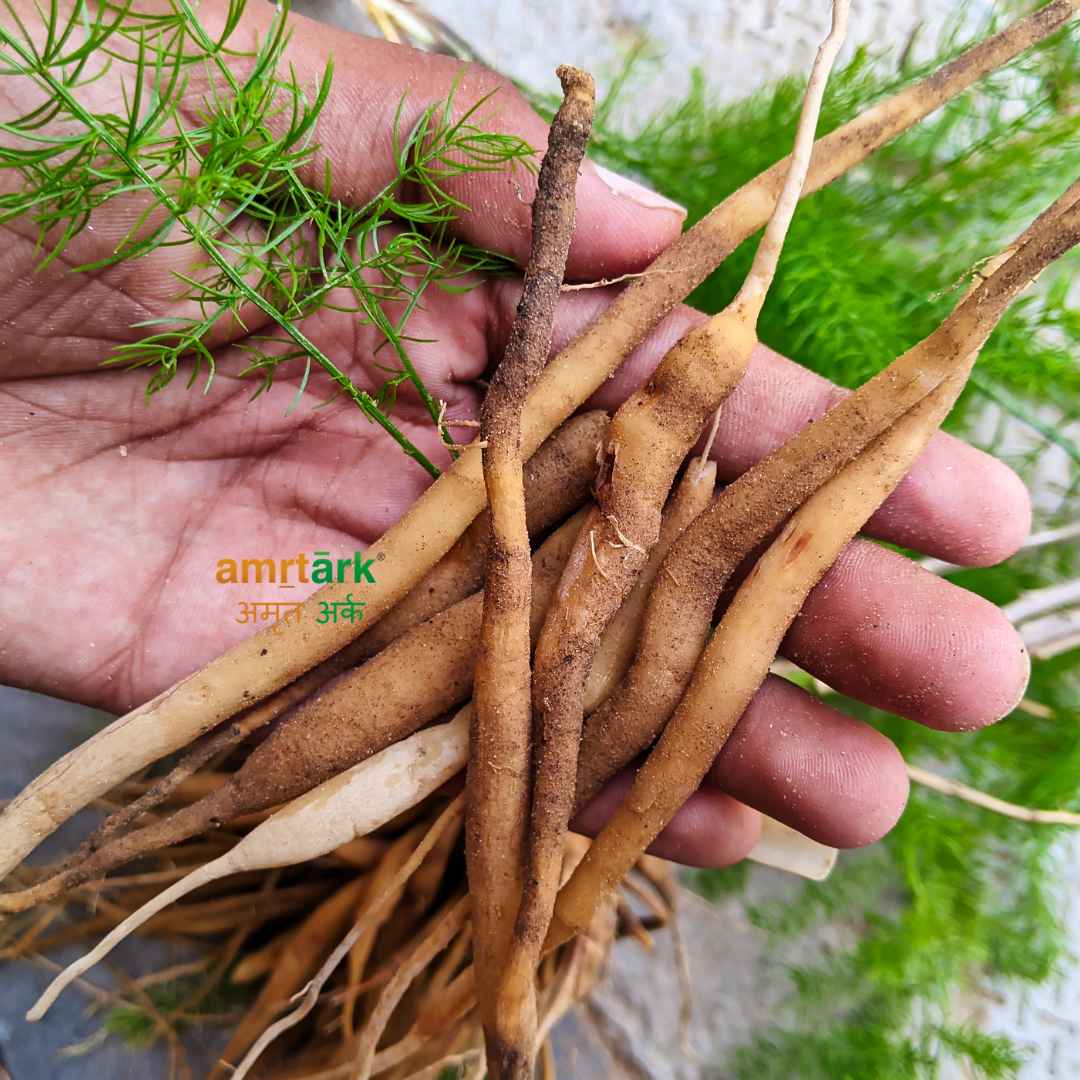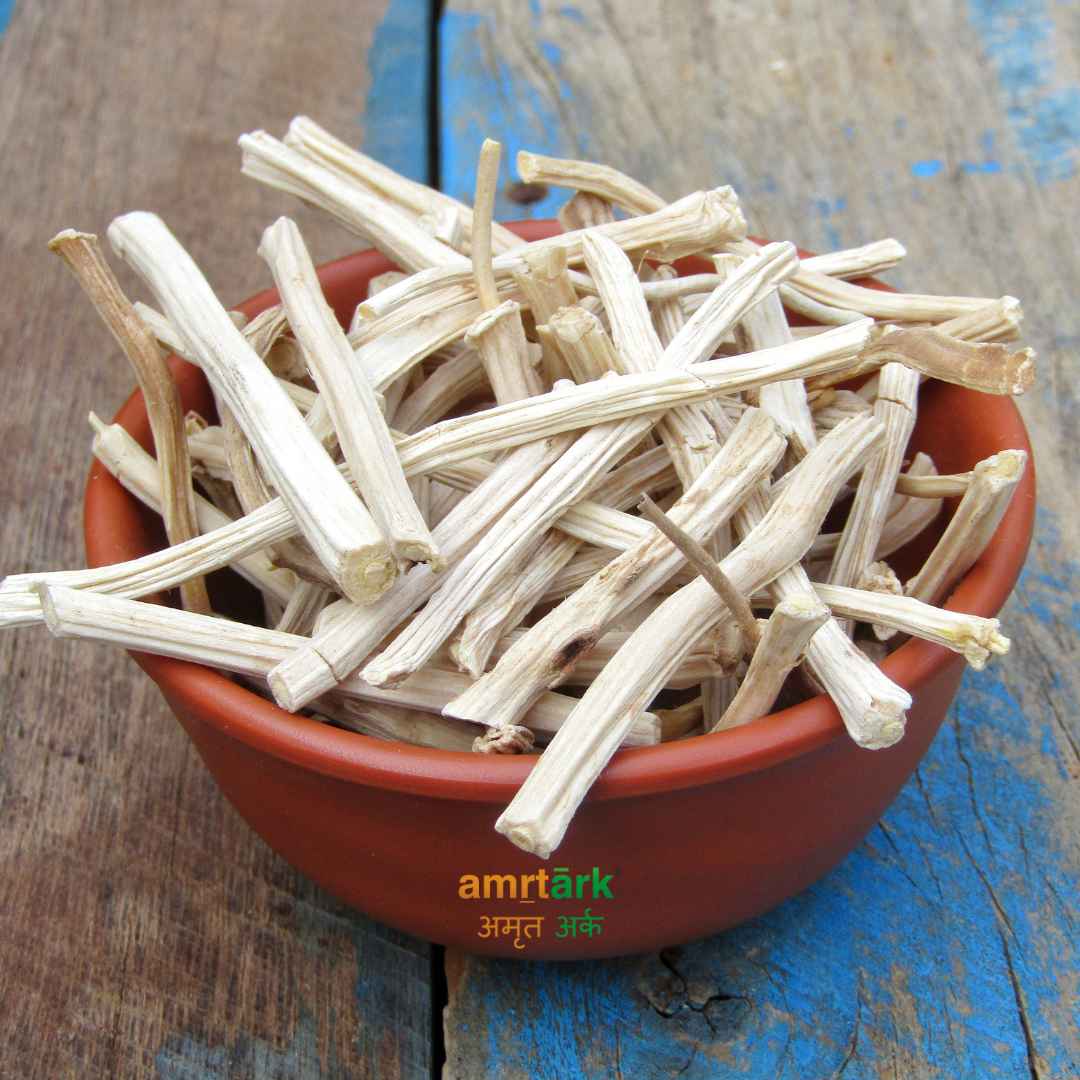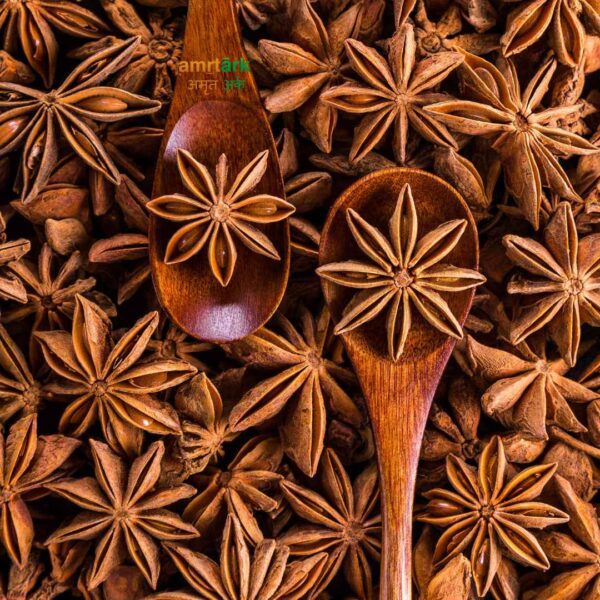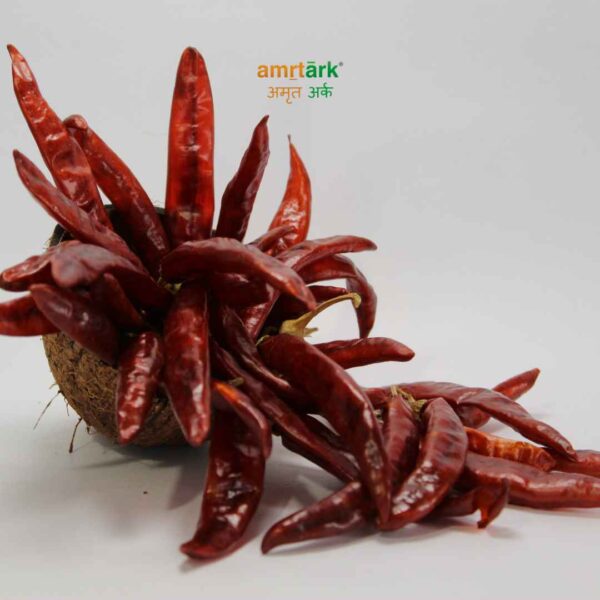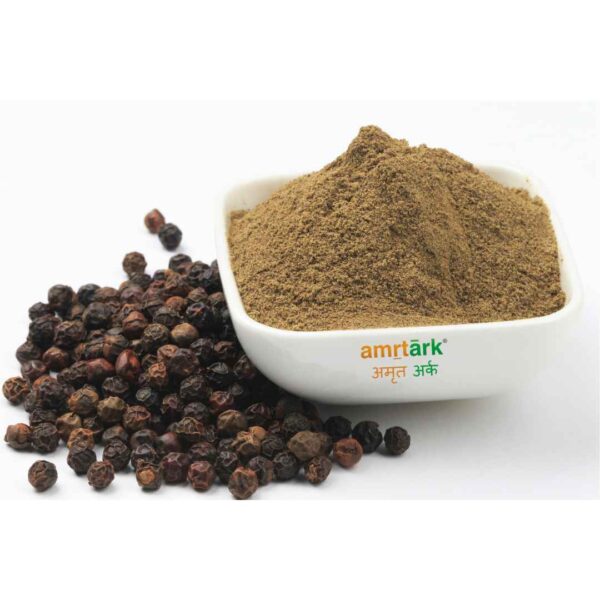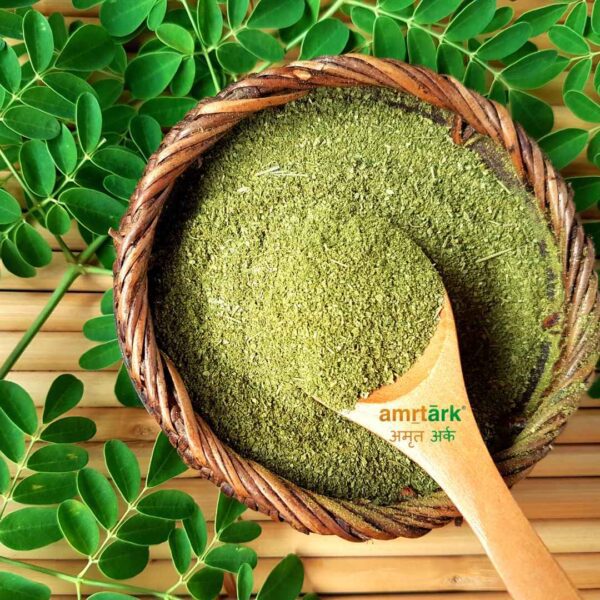Description
Shatavari (Asparagus racemosus)
Shatavari, scientifically known as Asparagus racemosus, is a perennial climbing plant native to the Indian subcontinent. In Ayurveda, Shatavari is highly valued as a rejuvenating tonic, particularly for its benefits to women’s health. It is also known as the “Queen of Herbs” because of its wide-ranging therapeutic properties, especially in supporting the female reproductive system. The name “Shatavari” in Sanskrit means “the one who possesses a hundred husbands,” reflecting its ability to promote fertility and vitality.
Botanical Characteristics
- Common Names: Shatavari, Wild Asparagus, Satavari, Shatamull, Indian Asparagus
- Scientific Name: Asparagus racemosus
- Family: Asparagaceae
- Appearance: Shatavari has needle-like leaves and small white fragrant flowers, which develop into red berries. The plant has a tuberous root system, which is the part used medicinally.
Active Compounds and Nutrients
The roots of Shatavari are rich in bioactive compounds, including steroidal saponins (Shatavarins), which are responsible for many of its medicinal effects. Other important constituents include:
- Alkaloids: Offer general health benefits.
- Isoflavones: Plant estrogens that help balance hormones.
- Mucilage: Provides soothing properties.
- Vitamins: B, C
- Minerals: Calcium, Zinc, Phosphorus
Health Benefits of Shatavari
- Women’s Reproductive Health: Shatavari is best known for its ability to support the female reproductive system. It helps regulate hormones, alleviate menstrual irregularities, reduce symptoms of PMS, and promote fertility. For women going through menopause, Shatavari acts as a natural hormone balancer and helps ease symptoms such as hot flashes and mood swings.
- Aphrodisiac and Fertility Booster: Shatavari is considered a potent aphrodisiac for both men and women. In women, it enhances ovulation and improves reproductive functions. In men, it helps improve sperm count and mobility, contributing to increased fertility.
- Lactation Support: The herb is traditionally used to support lactation in breastfeeding mothers. Its galactagogue properties help increase the production of breast milk.
- Adaptogen: Shatavari is an adaptogen, meaning it helps the body cope with physical and emotional stress. It improves resilience to stress by balancing cortisol levels, boosting energy, and promoting a sense of calm.
- Anti-inflammatory: Shatavari has anti-inflammatory properties that help reduce inflammation in the body. It is used to treat conditions like arthritis and inflammatory bowel disorders.
- Digestive Health: The mucilaginous nature of Shatavari roots helps soothe and protect the lining of the stomach, reducing acidity, heartburn, and ulcers. It is also effective in treating gastrointestinal issues like diarrhea and irritable bowel syndrome (IBS).
- Immune System Booster: Shatavari strengthens the immune system by promoting the production of white blood cells, which helps fight infections and illnesses.
- Antioxidant: The herb is rich in antioxidants, which protect the body from oxidative stress and free radical damage. This makes it effective in reducing the signs of aging and promoting overall cellular health.
- Respiratory Health: Shatavari is also used to treat respiratory problems like bronchitis, asthma, and coughs due to its soothing and anti-inflammatory effects on the respiratory tract.
Traditional and Ayurvedic Uses
In Ayurveda, Shatavari is classified as a Rasayana herb, meaning it is used as a rejuvenator and a tonic for longevity and vitality. It is believed to balance the Pitta and Vata doshas while nourishing the body’s vital energy (ojas). Shatavari is recommended for:
- Women’s Health: It is a go-to herb for regulating the menstrual cycle, improving reproductive health, and easing menopausal symptoms.
- Digestive Health: Used in cases of hyperacidity, ulcers, and digestive distress due to its cooling, soothing properties.
- Stress Relief: It is used to calm the nervous system, reduce anxiety, and promote mental clarity.
Modern Uses and Forms
Shatavari is available in various forms:
- Powder: Shatavari root powder is often mixed into warm milk, smoothies, or teas.
- Capsules/Tablets: Standardized extracts in capsule or tablet form are widely used as supplements for women’s health and overall vitality.
- Liquid Extract: Shatavari extract is used as a more concentrated form for faster absorption and effectiveness.
Culinary Uses
Although primarily used medicinally, Shatavari can also be consumed as a food. In traditional Indian cuisine, the young shoots of the plant are cooked as a vegetable, much like asparagus.
Side Effects and Precautions
Shatavari is generally considered safe when used in appropriate doses. However, it may cause allergic reactions in people who are allergic to asparagus or other plants in the same family. People with kidney disorders or those prone to fluid retention should consult a healthcare provider before using Shatavari, as it has diuretic properties.


